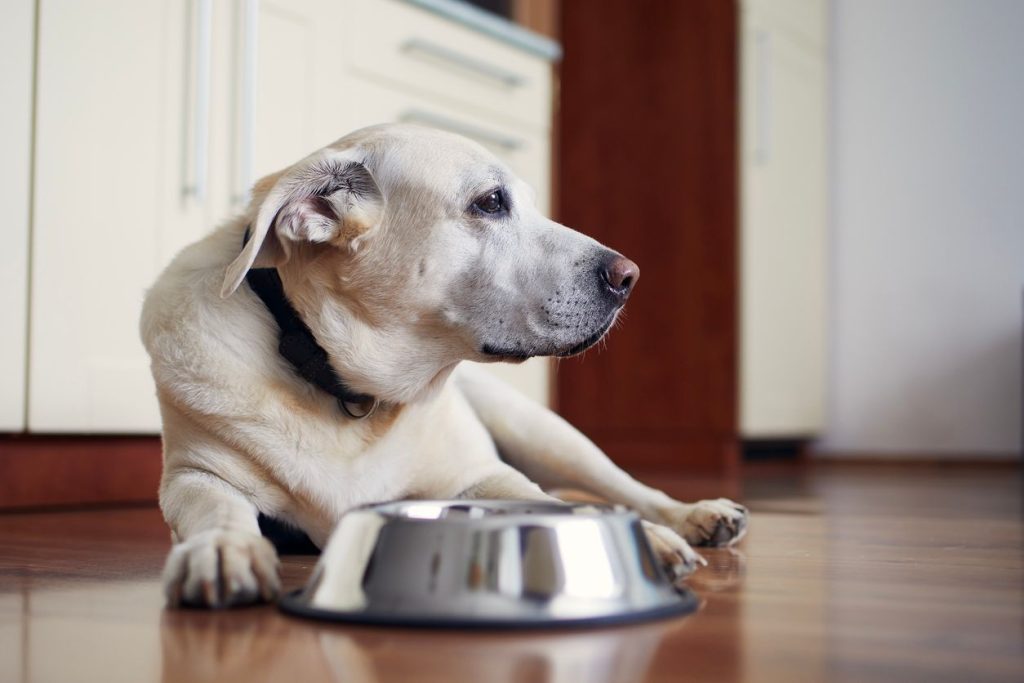Caring for Elderly Pets: Challenges and Solutions

Caring for Aging Pets: Understanding the Challenges
The journey of pet ownership evolves greatly over the years, especially when our furry friends enter their golden age. As pets age, they often confront a myriad of health issues that can significantly impact their overall well-being. Recognizing and understanding these challenges are essential for pet owners dedicated to enhancing the quality of life for their beloved companions.
Common Health Issues
One of the most prevalent concerns for elderly pets is arthritis and mobility problems. Just like humans, as pets age, their joints can become stiff and painful, leading to mobility issues. For instance, a senior dog may find it challenging to navigate stairs or may hesitate to jump onto their favorite couch. Regular veterinary visits can help in diagnosing these conditions and managing pain effectively with medications or supplements.
Additionally, dietary needs significantly change as pets age. Many older pets require specialized nutrition to support their health. This might involve lower-calorie diets to prevent obesity, which can exacerbate mobility issues, or high-fiber diets to support digestive health. Pet owners should consider consulting with a veterinarian to identify the best dietary plan tailored to their pet’s specific health requirements. Certain brands offer senior-specific formulas that include joint support compounds like glucosamine and omega fatty acids, which can be beneficial.
Emotional Well-being
The emotional state of aging pets is just as important as their physical health. Many elderly pets experience anxiety and depression, which can stem from changes in their routine or environment. Signs of distress in pets can include excessive barking, hiding, or changes in eating habits. In such cases, maintaining a predictable routine, providing interactive toys, or considering calming supplements can help alleviate their anxiety. Engaging with them through gentle play or extra cuddle time can also significantly boost their mood.
Solutions for Better Living
Finding effective solutions to these challenges is essential for any pet owner. Regular veterinary check-ups, or routine health screenings, are critical in catching health issues early and implementing preventive care strategies. This proactive approach can lead to early interventions that can profoundly alter the trajectory of a pet’s health.

Additionally, home modifications can greatly improve an elderly pet’s quality of life. Simple adjustments, such as providing ramps or non-slip mats, can facilitate easier movement around the house. Ensuring that their resting areas are comfortable and accessible can help them feel more secure and relaxed in their environment.
Mobility aids, such as slings or pet strollers, can also provide added support for those pets that struggle with mobility. These aids not only help them move around more comfortably but also allow them to continue enjoying outdoor activities, which are essential for mental stimulation and emotional happiness.
As this journey unfolds, pet owners must remain vigilant, compassionate, and adaptable. Staying informed about the evolving needs of older pets and actively seeking out resources can empower owners to provide the very best care. By delving into the complex challenges and exploring the myriad of available solutions, we can ensure that our treasured companions lead fulfilling and joyful lives in their senior years.
DISCOVER MORE: Click here to learn about breed characteristics and pet behavior
Navigating the Challenges of Caring for Aging Pets
Caring for elderly pets presents a unique set of challenges that can be overwhelming for many pet owners. As our pets age, they often face a variety of health conditions that require attentive care and a deeper understanding of their evolving needs. These challenges, if not addressed, can lead to a decline in their quality of life. Understanding these issues is crucial for anyone devoted to their pet’s well-being.
Signs of Aging
Recognizing the signs of aging in pets is vital for early intervention and management. Some of the telltale signs may include:
- Decreased Activity: A noticeable reduction in playfulness or willingness to engage in walks can indicate discomfort or health issues.
- Weight Changes: Weight loss or obesity can be common in elderly pets and may require dietary adjustments.
- Changes in Grooming Habits: An aging pet may neglect grooming, resulting in matted fur or skin issues.
- Changes in Behavior: Sudden shifts in behavior, such as increased aggression or withdrawal, can be signs of pain or cognitive decline.
Regular monitoring for these signs can help ensure prompt veterinary consultations and appropriate management.
Assessing Health Risks
As pets age, they often become prone to various health issues. Common ailments such as kidney disease, diabetes, and hypothyroidism are prevalent among senior pets. Understanding these conditions allows pet owners to be more proactive in their care. For example, kidney disease is particularly common in older cats and dogs, leading to symptoms like increased thirst, frequent urination, and lethargy. If caught early, dietary changes and medications may help slow the progression of the disease.
Furthermore, oral health is another critical area to monitor. Dental disease can lead to severe discomfort and systemic health issues. Regular veterinary check-ups that include dental evaluations can help prevent serious complications, such as infections that affect the heart or kidneys.
Managing Multiple Medications
It is not uncommon for aging pets to require multiple medications to manage various health conditions. This can sometimes lead to confusion for pet owners. To effectively manage their pet’s health, consider the following strategies:
- Medication Schedule: Create a clear schedule detailing what medications are required and when to administer them.
- Communication: Maintain open communication with your veterinarian regarding your pet’s medication regimen to avoid potential interactions.
- Automated Reminders: Utilize phone apps or reminders for timely medication administration.
By staying organized and informed, caregivers can ensure that their aging pets receive the appropriate treatment needed to thrive.
Caring for elderly pets involves constant learning and adapting. By recognizing the signs of aging, assessing health risks, and effectively managing treatments, pet owners can navigate these challenges with greater confidence and compassion, ultimately ensuring their pets live fulfilling lives in their twilight years.
| Challenge | Solution |
|---|---|
| Mobility Issues | Implementing ramps and non-slip flooring to aid movement. |
| Dietary Needs | Consulting veterinarians to provide tailored nutrition plans that cater to specific health challenges. |
| Cognitive Decline | Engaging them in mental stimulation activities like puzzle feeders and training exercises. |
| Health Monitoring | Regular vet check-ups and utilizing technology for remote monitoring of health metrics. |
To ensure a holistic approach to caring for elderly pets, it’s crucial to address the challenges they face daily. Mobility issues often hinder their ability to move freely, leading to discomfort and a sedentary lifestyle. Utilizing ramps and adding non-slip surfaces in the home can significantly enhance their ability to navigate their environment.Dietary needs also evolve as pets age, making it essential to consult veterinarians for tailored nutrition plans that address weight management, joint health, and digestion. Utilizing vet resources will help in identifying the right food that suits their changing health needs.Cognitive decline is another serious challenge, affecting their behavior and engagement. Incorporating mental stimulation activities, like puzzle feeders, not only keeps their minds active but also enhances their quality of life.Lastly, ongoing health monitoring is vital. Regular veterinary visits, combined with technology that tracks health metrics, can provide valuable insights, ensuring timely intervention when necessary. Addressing these challenges with effective solutions will significantly improve the well-being of elderly pets and enhance the bond between them and their caregivers.
DIVE DEEPER: Click here to learn more about pet oral health
Implementing Effective Strategies for Comfort and Care
Once pet owners are aware of the challenges that accompany caring for elderly pets, the next crucial step is implementing effective strategies tailored to enhance their comfort and well-being. This phase involves a multifaceted approach—addressing dietary, mobility, and emotional needs in tandem to ensure their senior companions thrive in their golden years.
Dietary Adjustments
Aging pets often have different nutritional requirements compared to their younger counterparts. It is essential to provide them with a well-balanced diet that supports their unique health needs. Many owners find themselves navigating the world of senior pet food, which is often formulated with optimal protein levels, essential fatty acids, and added nutrients such as glucosamine that promote joint health.
Moreover, consulting with a veterinarian is vital. They can recommend specific dietary adjustments based on the pet’s health status. For instance, pets suffering from kidney disease may benefit from a low-protein diet, while those with diabetes require a controlled carbohydrate intake. Owners should also consider incorporating wet food into their pet’s meals, as it often provides added hydration and is easier to chew for pets with dental issues.
Mobility Support
As dogs and cats age, they may experience reduced mobility due to conditions like arthritis or previous injuries. To assist with their movement, pet owners can take proactive measures by investing in mobility aids, such as orthopedic beds, ramps, or harnesses designed to support elderly pets during walks. These resources make it simpler for pets to navigate their environment and minimize the risk of falls or injuries.
Engaging in gentle exercises is also critical; however, owners must adapt their activities according to their pet’s stamina and mobility. Shorter, more frequent walks can help keep their pets physically active without over-exerting them. Using toys specifically designed for senior pets can encourage mental stimulation and light activity, which are crucial for maintaining overall well-being.
Creating a Comforting Environment
A comforting home environment plays a vital role in a senior pet’s emotional health. Many pets may become anxious due to changes in their routine or environment. To mitigate this, owners should create a quiet, cozy space equipped with familiar items such as their favorite blankets and toys. Additionally, using pheromone diffusers or calming treats can help alleviate stress and anxiety in elderly pets, enhancing their overall comfort.
Social interaction is equally important. Regular visits from family members or gentle playtime can significantly benefit an elderly pet’s emotional state. Engaging in activities that foster connection, such as sitting together during relaxing times or doing low-key puzzles, can lead to better overall happiness for their pets.
Professional Assistance
It’s essential for pet owners to consider enlisting the help of professionals to ease the burden of caring for aging pets. Canine or feline physical therapists can provide tailored exercises aimed at improving mobility and strength. Furthermore, a veterinary geriatrician specializes in the needs of senior pets, offering a wealth of knowledge regarding age-related health issues.
Ultimately, navigating the challenges of caring for elderly pets involves a combination of informed choices and creative solutions. Through dietary adjustments, mobility support, environmental modifications, and assistance from professionals, pet owners can create a nurturing atmosphere that significantly enhances the quality of life for their cherished companions in their later years.
DISCOVER MORE: Click here for exciting training methods
Conclusion: Ensuring a Joyful Journey in Their Twilight Years
Caring for elderly pets is a multifaceted endeavor that requires dedication, understanding, and compassion. As our beloved companions enter their twilight years, they face unique challenges, from health issues to changes in mobility and behavior. However, by implementing effective strategies such as dietary adjustments, mobility support, and creating a comfortable environment, pet owners can alleviate many of these difficulties and greatly enhance their pets’ quality of life.
The transition to providing care for aging pets is not just about managing their physical needs; it’s also about fostering their emotional well-being and creating connections that bring joy. Engaging them in gentle activities and regular social interactions helps combat loneliness and enriches their days. Moreover, seeking professional assistance from veterinarians and physical therapists can provide invaluable support and guidance tailored to your pet’s specific needs.
Finally, it is crucial to remember that every pet is unique, and their individual health requirements may vary significantly. By observing changes in behavior and health and being proactive in adapting care strategies, owners can ensure that their pets enjoy a fulfilling and joyful life even as they age. With love, attention, and informed choices, we can cherish the time we have with our elderly pets, ensuring that their golden years are filled with dignity and happiness.



